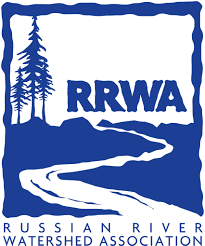Summer is upon us. We have completed our spring cleanup around the yard, made sure no standing water is present on our properties attracting mosquitos and set up our outdoor furniture. Summer also marks an important time of the year for water conservation. By using water wisely in the summer, it helps preserve our healthy watershed for the remainder of the year. Even though we received a lot of rainfall this winter, it is important to minimize water waste throughout our community.
Here are some ways in which you can reduce your summer water use:
• Manually check irrigation system and repair Leaks: By manually running through each irrigation station, you can accurately assess your system and make sure no water is being wasted. Fix any leaks that appear and prevent runoff.
• Know when to water: Make sure your irrigation system is running at night or in the early morning to avoid increased evaporation and wind interference.
• Rethink the watershed on your property: Redirect downspouts toward vegetated landscape or install rain chains to direct water to a catchment system. These simple measures will send rainwater where it can be used by plants or absorbed into the ground instead of to storm drains.
• Plant natives: Plant drought-tolerant, low water use plants. Natives are recommended since they are adapted to our climate and will demand less resources.
• Add mulch: Make sure to add mulch around plants to help insulate the soil, to provide a buffer from heat, help retain water and prevent weeds that would otherwise compete for resources.
• Convert your lawn: A grass lawn uses a majority of outdoor irrigation because of spray irrigation inefficiencies. Remove the lawn, plant natives and install drip irrigation.
• Rebate programs: Local water utilities offer rebates to help customers conserve water. Check your local water utilities website to see which rebates are available.
• Rethink your summer car washing: Automatic car washes are required by law to properly dispose of their water waste. Everything that’s been stuck to your car — gasoline, oil, heavy metal particles, tar and particulate matter from exhaust fumes — has the potential to flow from your wash area to the nearest storm drain and eventually reach the Russian River. Most commercial car wash facilities will filter rinse water and direct it to a sanitary sewer where it will get treated and possibly reused (recycled water).
For online information about water conservation, green car wash facilities in Sonoma County or to report water waste, go to the Sonoma-Marin Saving Water Partnership website at www.savingwaterpartnership.org.
This article was authored on behalf of RRWA, (www.rrwatershed.org) an association of local public agencies in the Russian River watershed that have come together to coordinate regional programs for clean water, habitat restoration and watershed enhancement.









